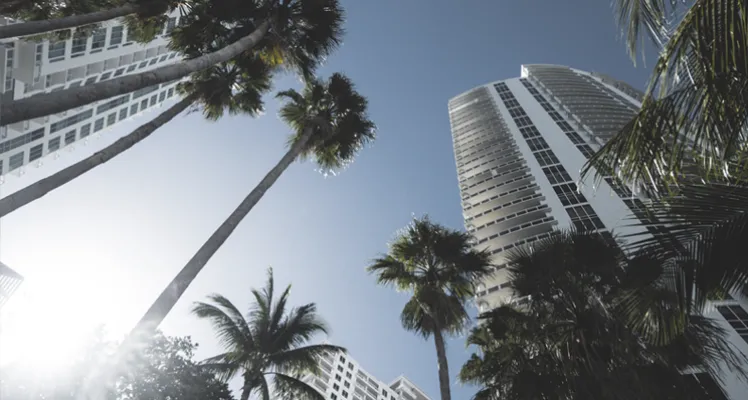
High hurdles – appointing provisional liquidators in the Cayman Islands
Appointing provisional liquidators is a powerful tool, but one which often has a serious impact on the commercial operations and business reputation of a company, and so is not a step to be taken lightly. This article examines recent judicial trends in the Cayman Islands regarding the appointment of provisional liquidators, and in particular, in relation to the balance of justice that needs to be weighed as between a petitioner and the company.
The appointment of provisional liquidators by the Cayman Court is a powerful and valuable tool in the right circumstances. However, in a series of recent cases, the Court has underscored the high hurdles that must be met and emphasised that an order to appoint liquidators must always be viewed as a serious step that requires a heavy and onerous evidential burden on those who seek such orders. Weighing the balance of justice between a petitioner and the company, the overriding principle is that the court should take whichever course seems likely to cause the least irremediable prejudice to one party or the other. [1]
Section 104(2) of the Cayman Islands Companies Act (2021 Revision) provides that at any time after the presentation of a winding up petition but before the making of a winding up order a creditor or contributory of a company may apply to appoint provisional liquidators where there is a prima facie case for making a winding up order and where such appointment is necessary to prevent the dissipation or misuse of the company's assets, or the oppression of minority shareholders, or to prevent mismanagement or misconduct on the part of the company's directors.
Doyle J in Re ICG I [2] summarised the statutory requirements concisely as four main hurdles for the applicants to jump over before an order can be made, being the "presentation of the winding up petition hurdle", the "standing hurdle", the "prima-facie case hurdle" and the "necessity hurdle". Of the four hurdles, the prima-facie case hurdle and the necessity hurdle are most often contested and hence considered by the Court.
In order to jump over the prima-facie case hurdle, previous case law suggests that whilst it is not necessary to demonstrate that a winding-up order will be granted, in the case of a creditor's petition, the threshold that the petitioner must cross ought to be nothing less than a demonstration that he is likely to obtain a winding-up order on the hearing of the petition.[3] This hurdle was most recently considered by Parker J in Re Al Najah. The petitioner in that case argued that there had been a justifiable loss of trust and confidence in the board due to its connection with the previous management of the company who were involved in fraud that was being investigated by the local authorities. The Court found that the fraudulent conduct of the previous directors was not attributable to the company and could not be said to be fraud in the conduct of the affairs of the company.[4] Furthermore, as there was no evidence of any on-going mismanagement at the company, the Court was not likely to conclude that it was just and equitable to wind up the company.
As for the necessity hurdle, this includes showing the Court the necessity of appointing provisional liquidators to prevent dissipation of the company's assets, oppression of minority shareholders, or mismanagement or misconduct on the part of the company's directors. The threshold for establishing such a necessity has been described as a “heavy burden” that required clear or strong evidence.[5]
The test for establishing a risk of dissipation of assets was described by Segal J in Re Asia Strategic Capital as “…sufficient if it is shown that the assets of the Company (or partnership) are being, or are likely to be, dissipated to the detriment of the petitioners”.[6] It is important to note that the risk here is not dissipation in the asset freezing sense of deliberately making away with the assets but rather, any serious risk that the assets may not continue to be available to the company.[7]
As for demonstrating mismanagement or misconduct of directors, the applicant must show that there is culpable behaviour involving a breach of duty or improper behaviour involving a breach of the governing documents and governance regime.[8] In Re ICG I, although the judge did not doubt the evidence that the petitioner had genuine and serious concerns about the activities of the directors, he nevertheless rejected the application to appoint provisional liquidators because he found that the petitioners failed to discharge the heavy and onerous burden for satisfying the necessity hurdle.
Going forwards, creditors and contributories of a company should take heed of the Court's emphasis on the high hurdles to be met. Mere assertion or suspicion of any potential risk of dissipation, oppression, or mismanagement is unlikely to be sufficient in appointing provisional liquidators; rather applicants should prepare rigorously to discharge the substantial burden on them. Petitioners should also watch out for potential liabilities in costs in the case of a failed application. In a recent case, the
Court commented:
“…I do however see the need in the case presently before me to discourage applications for the appointment of provisional liquidators which are not based on strong grounds and which are still persisted with in the face of reasonable opposition. Adverse costs orders are one way to deliver such discouragement." [9]
--------------------
1 Re Al Najah Education Limited (unreported, 9 August 2021) at [34].
2 In the Matter of ICG I FSD 192 of 2021 (unreported, 4 August 2021) at [17].
3 Revenue and Customs Commissioners v Rochdale Drinks [2013] BCC 419; [2012] 1 BCLC 748 per Rimer LJ; Re Asia Strategic Capital Fund LP 2015 (1) CILR N-4.
4 Re Al Najah Education at [46].
5 Re CW Group Holdings Limited (unreported, 3 August 2018) at [62].
6 Re Asia Strategic Capital Fund LP at [45].
7 Re Grand State Investments (unreported 8 April 2021) at [88]-[89].
8 Re Asia Strategic Capital Fund LP at [60].
9 Doyle J commented in Re ICG I FSD 192 of 2021 (unreported, 10 August 2021) at [14].
An original version of this article was first published in IHC Magazine in October 2021.






